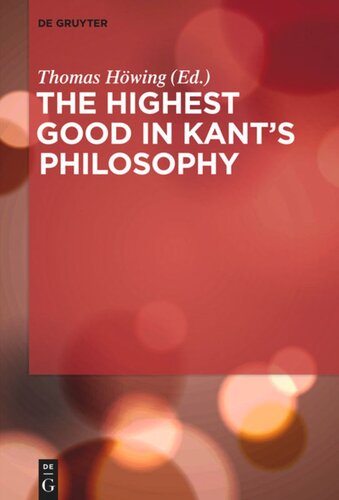

Most ebook files are in PDF format, so you can easily read them using various software such as Foxit Reader or directly on the Google Chrome browser.
Some ebook files are released by publishers in other formats such as .awz, .mobi, .epub, .fb2, etc. You may need to install specific software to read these formats on mobile/PC, such as Calibre.
Please read the tutorial at this link: https://ebookbell.com/faq
We offer FREE conversion to the popular formats you request; however, this may take some time. Therefore, right after payment, please email us, and we will try to provide the service as quickly as possible.
For some exceptional file formats or broken links (if any), please refrain from opening any disputes. Instead, email us first, and we will try to assist within a maximum of 6 hours.
EbookBell Team

0.0
0 reviewsThe idea of a final end of human conduct – the highest good – plays an important role in Kant’s philosophy. Unlike his predecessors Kant defines the highest good as a combination of two heterogeneous elements, namely virtue and happiness. This conception lies at the centre of some of the most influential Kantian doctrines such as his famous “moral argument” for the rationality of faith, his conception of the unity of reason and his views concerning the final end of nature as well as the historical progress of mankind. To be sure, the different treatments of the highest good in Kant’s work have led to a great deal of discussion among his readers. Besides Kant’s arguments for moral faith, recent debate has focused on the place of the highest good within Kant’s moral theory, on the antinomy of pure practical reason, and on the idea of the primacy of practical reason. This collection of new essays attempts to re-evaluate Kant’s doctrine of the highest good and to determine its relevance for contemporary philosophy.